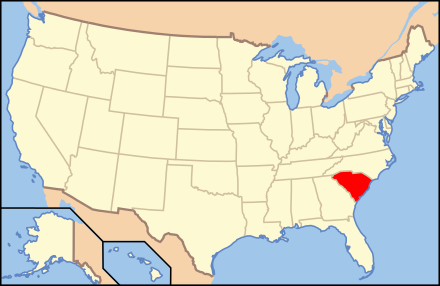In the wake of the God awful verdict of Trayvon Martin's 2nd degree trial, there's a few things we (South Carolinians) must know. All too often we are unaware of our rights, state laws and more importantly...how these laws work for us or against us. Many times it's not that the privileged or empowered is cheating us but more so they know how the laws work and the loop holes. We have to learn to play chess instead of checkers. Get off the freakin sidelines! No doubt race, money, privilege and connections play a BIG part in the "have/have nots" but, we can definitely be smarter, read more, second guess authority, vote (and not just big elections), research, ask questions, get involved, run for office, google, document....You get my drift. I bun too sad but not surprised when I saw SC on the list of 24 states that has the SYG law. So my beloved geechee fam I'm posting some info to at least get the wheels turning.
All my Gullah love, PenTherapee
Gun laws in South Carolina
From Wikipedia, the free encyclopedia
Gun laws in South Carolina regulate the sale, possession, and use of firearms and ammunition in the state of South Carolina in the United States.[1][2]
| Subject/Law | Long Guns | Handguns | Relevant Statutes | Notes |
|---|---|---|---|---|
| Permit to purchase required? | No | No | ||
| Firearm registration? | No | No | ||
| Owner license required? | No | No | ||
| Carry permits issued? | No | Yes | South Carolina is a "shall issue" state for concealed carry. | |
| Open carry permitted? | No | No | ||
| State preemption of local restrictions? | Yes | Yes | ||
| "Assault weapon" law? | No | No | ||
| Magazine Capacity Restriction? | No | No | ||
| NFA weapons restricted? | Yes | Yes | Possession of automatic firearms (made before May of 1986), short-barreled shotguns, or short-barreled rifles, like Silencers/suppressors, DD's, AOW's are allowed if registered properly with the ATF. |
South Carolina is a "shall issue" concealed carry permit state. No permit is required to purchase rifles, shotguns, or handguns. South Carolina also has "Castle Doctrine" legal protection of the use of deadly force against intruders into one's home, business, or car.[3] It is unlawful to carry a firearm onto private or public school property or into any publicly owned building except interstate rest areas without express permission. Open carry is not allowed, but no permit is required to carry a loaded handgun in the console or glove compartment of a car. As of September 12, 2008, states with which South Carolina has reciprocity are: Alaska, Arizona, Arkansas, Florida, Kansas, Kentucky, Louisiana, Michigan, Missouri, North Carolina, Ohio, Texas, Tennessee, Virginia, West Virginia, and Wyoming.[4][5]
South Carolina law also now supports a "stand your ground" philosophy under the "Protection of Persons and Property Act" SECTION 16-11-440(C) with the following language. The act was apparently ruled non-retroactive in State v. Dickey.[6]
A person who is not engaged in an unlawful activity and who is attacked in another place where he has a right to be, including, but not limited to, his place of business, has no duty to retreat and has the right to stand his ground and meet force with force, including deadly force, if he reasonably believes it is necessary to prevent death or great bodily injury to himself or another person or to prevent the commission of a violent crime as defined in Section 16–1–60.
South Carolina also has the “alter-ego” clause with respect to the defense of others, under which a person who uses deadly force to defend a friend, relative or bystander will be allowed the benefit of the plea of self-defense if that plea would have been available to the person requiring assistance if they had been the one who used deadly force. In other words, the person intervening is deemed to “stand in the shoes” of the person on whose behalf he is intervening. If that individual “had the right to defend himself, then the intervening party is also protected by that right. To claim self defense, a person has to be in a place they have a legal right to be, not be involved in any illegal activity, must not have started the confrontation, and must be in imminent danger of death or serious bodily harm.
References[edit]
- ^ "State Gun Laws: South Carolina", National Rifle Association – Institute for Legislative Action. Retrieved December 31, 2012.
- ^ "South Carolina State Law Summary", Law Center to Prevent Gun Violence. Retrieved December 31, 2012.
- ^ "Protection of Persons and Property Act", South Carolina Law Enforcement Division. Retrieved December 26, 2012.
- ^ South Carolina Concealed Carry CCW Laws and Information on carryconcealed.net[dead link]
- ^ South Carolina Concealed Carry Permit Information on USACarry.com
- ^ State v. Dickey and S.C.'s "stand your ground" law dead link

